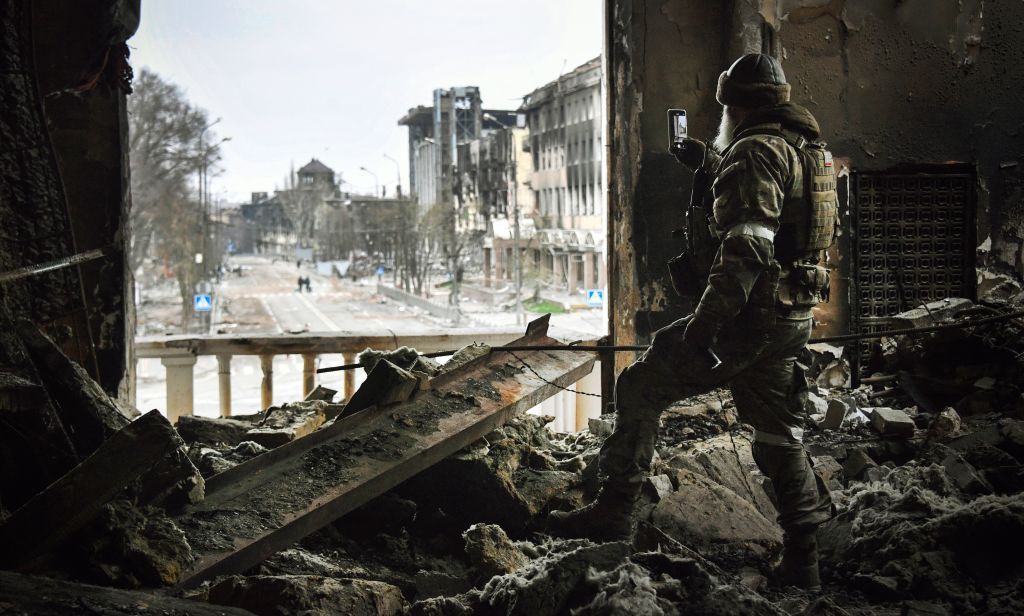Eugene Czolij: Russia uses disinformation as a weapon against Ukraine

Disinformation is an instrument for deliberately propagating false information with the intent to mislead. Therefore, disinformation and its sources should not be treated in the same way as fact-based news reporting. Disinformation is not one of the sides of a story. It is a falsehood that must not be accorded equal standing in a news narrative based on widely accepted standards of journalism, namely: truth, accuracy, and objectivity.
On Dec. 13, 2016, Garry Kasparov, a former world chess champion and well-known Russian political activist, tweeted the following: “The point of modern propaganda isn't only to misinform or push an agenda. It is to exhaust your critical thinking, to annihilate truth.”
Disinformation regarding Ukraine is a dangerous weapon in Russia’s hybrid arsenal that overtly aims to conquer Ukraine by any means and at any cost.
On Nov. 3, 2015, in his testimony before the Subcommittee on Europe and Regional Security Cooperation of the U.S. Senate Foreign Relations Committee, former U.S. Deputy Assistant Secretary of State Benjamin Ziff stated that:
“The Kremlin sponsors these efforts (to sow doubt, confusion and suspicion, and question even the most basic truths) with a sophisticated $1.4 billion a-year propaganda apparatus at home and abroad, which claims to reach 600 million people across 130 countries in 30 languages. The Russian government also funds think tanks and outside organizations in its neighboring states to help achieve its goals of promoting the Kremlin’s false narratives; portraying the West as a threat; and undermining trust in independent media as well as Western institutions and values.”
On May 23, 2023, the Permanent International Media Monitoring Mission on Disinformation about Ukraine and the Ukrainian diaspora, launched by NGO “Ukraine-2050,” presented a report in five languages (Ukrainian, English, French, German and Spanish) on media monitoring of disinformation about Ukraine during the period from Feb. 24, 2022 – the beginning of Russia's full-scale war against Ukraine – until Feb. 24, 2023.
The report groups various disinformation narratives into seven disinformation metanarratives to better highlight the information base that was being generated by Russian propaganda during Russia's full‑scale war against Ukraine. These seven disinformation metanarratives are:
- “NATO, led by the USA and with the support of the West, is the aggressor that started the war against Russia in Ukraine;”
- “Ukraine is a neo-Nazi, aggressive and artificial state;”
- “The West is making a mistake by providing weapons and other aid to Ukraine, as well as by imposing sanctions against Russia;”
- “Ukraine commits war crimes and acts of terrorism against its own population, and organizes demonstrations of mass casualties of the civilian population in order to blame Russia;”
- “Ukraine bans and oppresses everything Russian;”
- “Russia is a humane state firmly defending its interests;”
- “Russia is the last pillar of spirituality in Europe and a capable leader of the global movement against Western neocolonialism.”
The Kremlin’s overall purpose in using disinformation is to: (a) shift the blame for Russia’s war against Ukraine to the U.S. and NATO and disrupt the West’s unity in supporting Ukraine and sanctioning Russia; and (b) discredit Ukraine and undermine both internal and external support of Ukraine’s governing authorities and armed forces. In other words, “to annihilate truth.”
On July 16, 2022, Ukraine’s President Volodymyr Zelenskyy stated:
“How many problems Ukrainians create for themselves by trusting any anonymous source... This sometimes takes on simply unhealthy forms when social networks and websites deliberately stuff fake information from Russia, the purpose of which is only one – to add media terror to the missile and artillery terror against our country. Therefore, we also need a kind of emotional sovereignty so that we do not depend on what the enemy constantly launches against you and me. … Sometimes media weapons can do more than conventional weapons.”
NATO member countries should also be conscious of the fact that Russian disinformation is meant to divide and weaken them. More attention must be focused on debunking disinformation and exposing the work of Russia’s useful idiots to avoid poor decisions based on disinformation that can cost human lives and cause more devastation of property.
As a rule of thumb, contradictory reports regarding the situation in Ukraine should be interpreted by always keeping in mind Russia’s historical record of disinformation, as well as the fact that Russia is the aggressor and Ukraine the victim of an unprovoked genocidal war.
Editor's Note: The opinions expressed in the op-ed section are those of the authors and do not purport to reflect the views of the Kyiv Independent.













